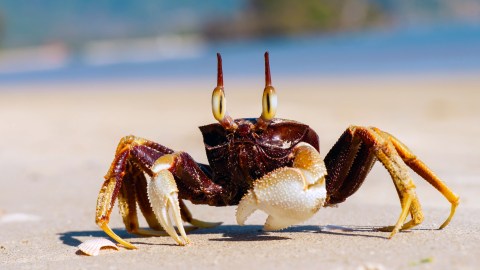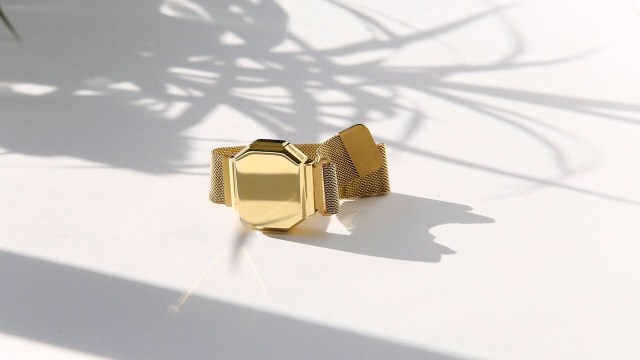A new material made from crab shells could replace plastic

Researchers at the Georgia Institute of Technology have developed a compostable material derived from crab shells and tree fibers that might not only be able to replace plastic wrap but could even do a better job keeping food fresher for longer than currently available non-nature-derived plastic wrap.
Why crab shells? Why tree fibers? Because crab shells are composed of a certain kind of ‘chitin nanofiber’ and there are chemicals in tree fibers that can help keep the chemicals from the crab shells in place. Interest has grown in the past decade in ‘cellulose nanomaterials,’ in particular because they’re “low-cost, lightweight, environmentally friendly, and easy to recycle or compost.”
What’s so special about being able to replace already existing plastic wrap?
- “According to data calculated by Statista based on the U.S. Census data and Simmons National Consumer Survey, 6.1 million Americans used 10 or more rolls/boxes of rolls/boxes of plastic wrap in 2017.”
- 91% of plastic isn’t recycled — and can take up to 400 years to decompose.
- We produced more plastic between 2000 and 2010 than in the entirety of the previous century.
All this impacts the environment in myriad ways: as The Independent noted in 2017, plastic — which acts as a magnet for poisons when improperly disposed of — is currently estimated to harm more than 600 species in the wild. We may end up with more plastic in the sea than fish in the sea before 2050. It can contaminate the air we breathe. And the chemicals that currently compose plastic wrap — either petroleum or ‘nurdles’ (plastic pellets that frequently serve as ones of the basic ‘building blocks’ for plastic products) — can attract toxins that are subsequently elevated to harmful levels — and — given the size of a nurdle, as well as the fact that it looks like a small egg — they are then devoured by fish or birds.
There’s a not unreasonable argument to make that — in producing plastics at the rate we’re doing and at the scale we’re doing — we’re slowly poisoning ourselves.
Such an arrangement of fact would lead one to believe that it’s only a matter of time until policymakers began crafting policy with an eye towards fixing this problem, but — as any fan of Veep will tell you — plastics has a surprisingly strong lobbying presence.
There’s The American Progressive Bag Alliance, which managed to temporarily delay a California law that banned plastic bags. In Georgia — as The Washington Post reported in 2015 — the state passed a law prohibiting the ban of plastic bags. A similar bill appeared in Michigan and Wisconsin, each also bearing the fingerprints of The American Progressive Bag Alliance.
Advocates for plastic might say that “It would be hard to imagine life without plastics,” but — if this invention based on crab shells and tree fibers holds up — they won’t have to.




